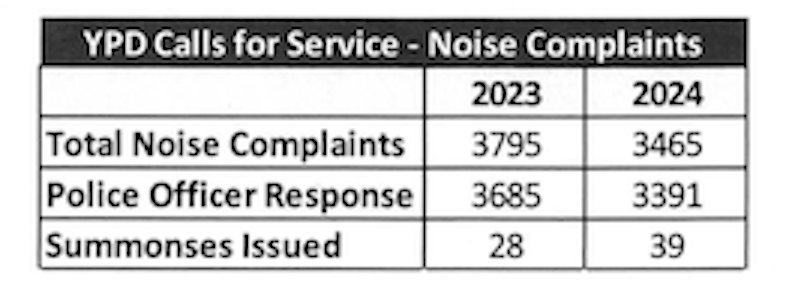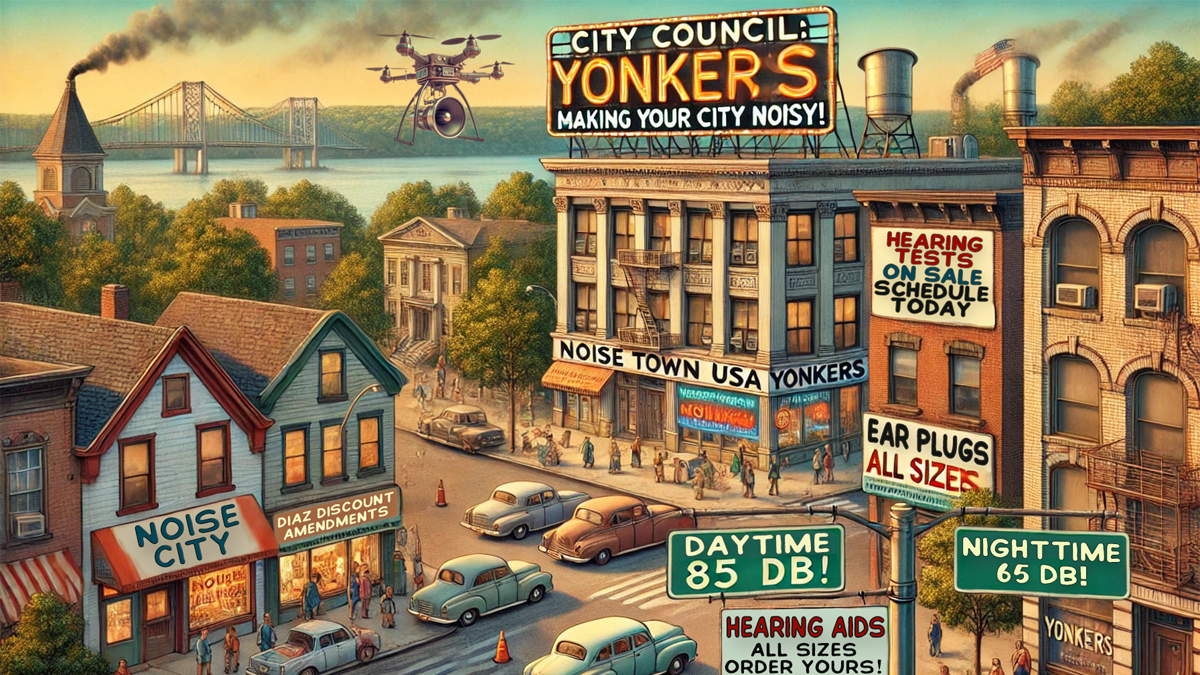
When the Yonkers City Council voted to give the city one of the worst noise ordinances in the US, a major goal was to decrease the number of noise complaints made to the police and to reduce what council members believed was unfair enforcement of the noise code.
That has not happened. In the year before the ordinance was passed, the city received 3795 noise complaints. In the next year, 3465. And yes, that’s an 8 percent decrease. However, the number of summonses issued increased from 28 to 39, a 39% increase.
As far as we know, this is the first time data on noise complaints has been released. The YPD does not release public reports on violations. We obtained these stats only through a FOIL requests.
In reality, these numbers don’t mean much, other than to suggest that the change in the noise ordinance made little real difference to the police department. The year to year variation may not be statistically significant: to figure that out, we’ve had to submit a FOIL request to the police dept. for more years of noise complaints and response data.
Most people bothered by noise don’t look at the ordinance to determine if the noise is loud. The police rarely if ever use decibel meters when they respond to noise complaints, so again the ordinance doesn’t really change what they do when they arrive.
We oppose the radical increase in the noise limits because it’s bad policy that disregards the impact of noise on community health and quality of life. A city with a terrible noise ordinance stands very little chance of developing well thought out, meaningful policies that can create a healthier, more livable city.
The City Council did no meaningful research before they voted to increase the noise levels. And their justification for the increase lacks credibility — raising the question of what really motivated the proposal.
The measure was sponsored by Council Member Tasha Diaz. In a recent interview, Ms. Diaz continued to justify her proposal with the dubious and factually unsupported notion that a change in the ordinance would reduce police calls and unfair enforcement. “Far too often, the police are called to deal with noise complaints, and in most cases it’s not loud. It just seems that way because some people talk at a higher pitch,” she told us. “Don’t get me wrong, quality of life issues matter, but to pull our police department away from issues that are far more important than a noise complaint isn’t fair for the safety and well-being of the city.”
Let’s hope that the Council will very soon take another look at the noise ordinance, and this time make a decision based on data, research and city government best practices.


